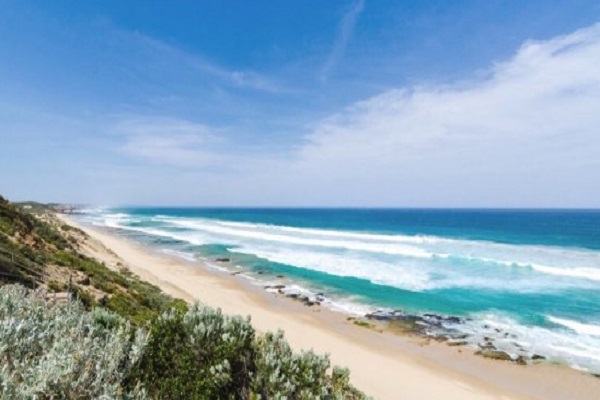
Portsea Beach is one of Victoria’s most popular and infamous beaches, being the site of regular iron-man contests, but also near the spot where Prime Minister Harold Holt disappeared in the surf in 1967. Portsea is a popular summer beach with extensive parking areas in the dunes, all of which provide a good view of the beach, its wide surf zone, and many rips and reefs. So take a good look before you go down and enter the surf.
The beach is 2.5 km long, with extensive intertidal calcarenite rock platforms and reefs forming the boundaries, together with smaller reefs and rocks outcropping along the beach.
It faces the southwest and receives the full force of the southwest waves and westerly winds. The waves average 1.8 m and combine with the finer sand and reefs to produce a 200 m wide surf zone, containing rip-dominated inner and outer bars. Rips occur every 300 m along the inner bar, with strong permanent rips against major reefs. One permanent rip to the right of the surf club is known as Huey’s Reef.
The Portsea Back Beach Road provides good access to the car parks and a lookout above the beach, with a steep walk down to the beach and surf lifesaving club. The club was founded in 1949 and averages 143 rescues a year, the highest in Victoria.
Please Note – SLSA provides this information as a guide only. Surf conditions are variable and therefore this information should not be relied upon as a substitute for observation of local conditions and an understanding of your abilities in the surf. SLSA reminds you to always swim between the red and yellow flags and never swim at unpatrolled beaches. SLSA takes all care and responsibility for any translation but it cannot guarantee that all translations will be accurate.
Home » Visitor Guide » Beaches & Parks » Portsea Surf Beach